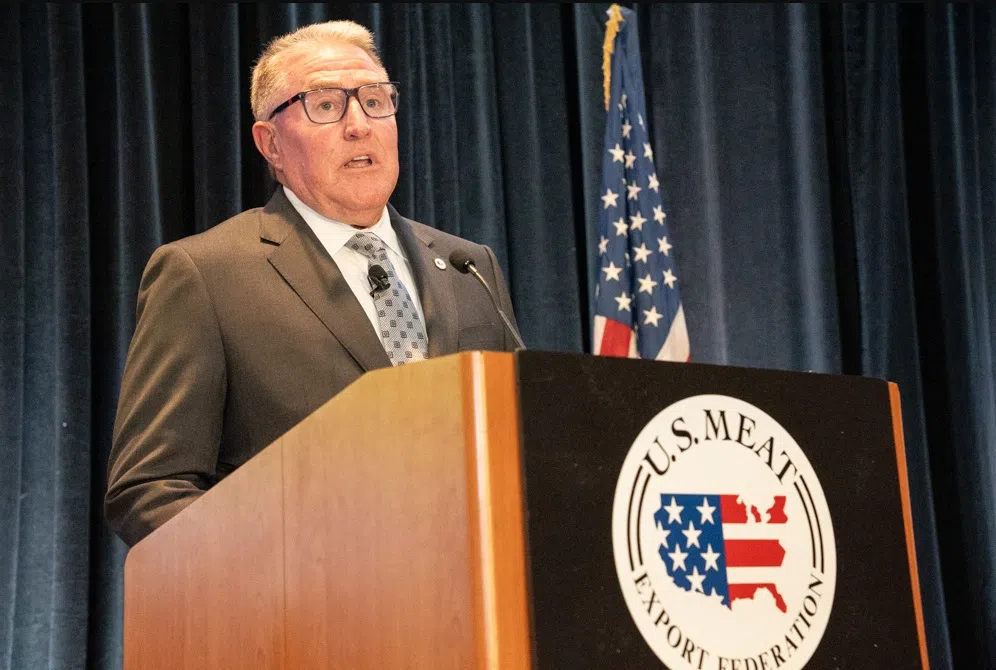The U.S. Meat Export Federation (USMEF) launched its annual strategic planning conference in Tucson, Ariz., Wednesday with an analysis of the U.S. election’s potential impact on agricultural policy and international trade. USMEF members also received an in-depth look at the new administration in Mexico, as the United States prepares for a critical phase of trade relations with the largest export destination for U.S. red meat.
USMEF President and CEO Dan Halstrom opened the conference with an overview of U.S. red meat exports in 2024 and his outlook for the coming year. Halstrom highlighted the resilience in international demand for U.S. red meat despite volatility and serious headwinds in major Asian markets. USMEF forecasts that U.S. pork exports will set volume and value records in 2024, surpassing 3 million metric tons (mt) valued at $8.63 billion. U.S. beef exports are projected to reach 1.28 million mt worth $10.5 billion, an increase of 5% over 2023. A critical piece of this export performance in a volatile year is the demand growth for U.S. red meat in Latin America. Halstrom emphasized the importance of protecting hard-fought market share in increasingly competitive environments. The Latin American boom is real, Halstrom said, and the U.S. industry must keep a close eye on its competition.
“Brazil is starting to get more volume into Mexico, Central America and even into Japan,” Halstrom said. “That being said, our quality ‒ beef, pork and lamb ‒ is second to none. Our products command a superior price and that’s the way that we’re approaching it when we work to develop these markets. We need to maximize opportunities in our major markets and carve out new destinations, such as Africa, for the future.”
Keynote speaker Jim Wiesemeyer, a veteran journalist and renowned Washington insider, delivered his insights about the presidential and congressional elections and the potential effects on U.S. agriculture and trade policy. Wiesemeyer highlighted that Trump is the first candidate in over a century to reclaim the White House after losing it, having gained even stronger support in rural America than he had in two previous elections. Republicans did much better than most expected in U.S. Senate races, with a likely pickup of four seats in addition to the 49 held in the current Congress. Although several House races were still too close to call, it appears the GOP will hold on to its narrow majority, he reported.
Wiesemeyer speculated on the post-election agendas for the White House and the 119th Congress and identified what he expects will be their key issues. He stated that the election outcome may have improved the chances of completing a new Farm Bill before the end of 2024, with Senate Agriculture Committee Ranking Member John Boozeman (R-Ark.) leading the effort during the upcoming lame duck session of Congress.
Wiesemeyer pledged to return with additional election analysis on Friday, the final day of the USMEF conference, when he also plans to discuss potential candidates for cabinet positions and other major presidential appointments.
Source: USMEF





Comments